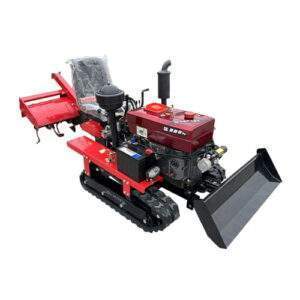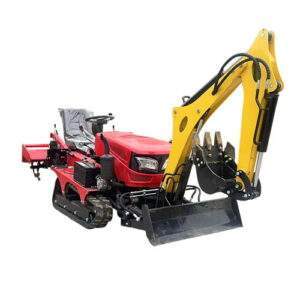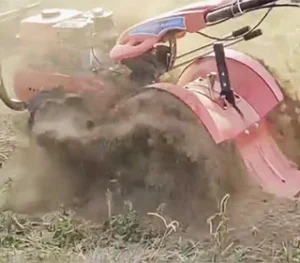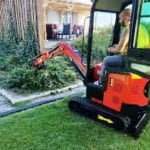How Agricultural Mini Tractors Revolutionize Farming
Welcome to My Blog!
Before we dive into the content, I’d love for you to join me on my social media platforms where I share more insights, engage with the community, and post updates. Here’s how you can connect with me:
Facebook:https://www.facebook.com/profile.php?id=61557298070472
Now, let’s get started on our journey together. I hope you find the content here insightful, engaging, and valuable.
Introduction

Agriculture is a field continuously evolving with advancements in technology. Among these innovations, agricultural mini tractors are making a significant impact. These compact machines are transforming how farming is done by providing versatile, efficient, and cost-effective solutions for a range of tasks. In this blog, we will explore how agricultural mini tractors are revolutionizing farming, examining their benefits, features, and the role they play in modern agriculture.
What is an Agricultural Mini Tractor?
Definition and Key Features
An agricultural mini tractor is a smaller, more compact version of a traditional tractor designed to perform various farming tasks on a smaller scale. These tractors are ideal for smaller plots of land, vineyards, orchards, and even large gardens. Key features of agricultural mini tractors include:
- Compact Size: Allows access to narrow and hard-to-reach areas.
- Versatility: Capable of handling multiple tasks with different attachments.
- Efficiency: Designed for optimal fuel efficiency and minimal maintenance.
- Ease of Use: User-friendly controls and operation.
Key Features of Agricultural Mini Tractors
| Feature | Description |
|---|---|
| Compact Size | Ideal for small plots and tight spaces |
| Versatility | Handles various tasks with multiple attachments |
| Efficiency | Fuel-efficient and low-maintenance |
| Ease of Use | Simple controls and user-friendly operation |
Benefits of Agricultural Mini Tractors
Enhanced Efficiency
Agricultural mini tractors significantly enhance efficiency on the farm. Their compact size allows them to navigate through tight spaces and perform tasks quickly. This efficiency translates into time and cost savings, as smaller tasks that would take longer with larger machinery can be completed swiftly.
Cost-Effectiveness
One of the main advantages of agricultural mini tractors is their cost-effectiveness. They are generally more affordable than their larger counterparts, both in terms of initial purchase price and ongoing maintenance costs. This makes them an attractive option for small to medium-sized farms or for specific tasks on larger farms.
Versatility and Adaptability
Mini tractors offer remarkable versatility. They can be equipped with various attachments such as plows, cultivators, seeders, and mowers, making them suitable for a wide range of agricultural tasks. This adaptability allows farmers to use a single piece of equipment for multiple purposes, maximizing the utility of their investment.
Accessibility and Maneuverability
The compact design of agricultural mini tractors makes them highly maneuverable. They can easily access narrow paths and operate in tight spaces where larger tractors would be impractical. This feature is particularly beneficial for tasks in orchards, vineyards, and small-scale gardens.
Improved Soil Management
Mini tractors contribute to better soil management practices. With the ability to perform precise tillage and cultivation, they help in maintaining soil structure and fertility. This leads to improved crop yields and more sustainable farming practices.
Benefits of Agricultural Mini Tractors
| Benefit | Description |
|---|---|
| Enhanced Efficiency | Quick completion of tasks, saving time and costs |
| Cost-Effectiveness | Lower initial and maintenance costs |
| Versatility | Handles multiple tasks with various attachments |
| Accessibility | Maneuvers easily in tight spaces |
| Improved Soil Management | Precise tillage and cultivation for better yields |
Applications of Agricultural Mini Tractors
Small-Scale Farming
For small-scale farmers, agricultural mini tractors offer an ideal solution for managing their land efficiently. Tasks such as planting, tilling, and harvesting can be accomplished with ease, making it possible for farmers to maintain productivity on smaller plots.
Vineyard and Orchard Management
Mini tractors are particularly valuable in vineyards and orchards. Their compact size allows them to navigate between rows of plants without damaging crops. They can be used for tasks such as pruning, spraying, and soil preparation, ensuring the health and productivity of the plants.
Landscaping and Gardening
In addition to traditional farming applications, agricultural mini tractors are also useful for landscaping and gardening. They can handle tasks such as soil preparation, planting, and maintenance, making them a versatile tool for both professional landscapers and avid gardeners.
Utility Work
Mini tractors are also used for various utility work on farms, including clearing debris, moving materials, and maintaining farm infrastructure. Their ability to handle different attachments makes them a valuable asset for diverse tasks.
Applications of Agricultural Mini Tractors
| Application | Description |
|---|---|
| Small-Scale Farming | Efficient management of small plots of land |
| Vineyard and Orchard | Navigates rows, handles tasks like pruning and spraying |
| Landscaping and Gardening | Soil preparation and maintenance |
| Utility Work | Clearing debris, moving materials, infrastructure maintenance |
Case Studies: Real-World Impact
Vineyard Enhancement
In a vineyard in California, the introduction of agricultural mini tractors significantly improved operational efficiency. The compact size of the mini tractors allowed them to navigate between grapevines easily, handling tasks such as pruning and fertilization with greater precision. The vineyard reported increased productivity and reduced labor costs.
Small Farm Efficiency
A small family farm in rural Europe adopted agricultural mini tractors to replace outdated equipment. The mini tractors facilitated quicker planting and harvesting, leading to improved crop yields. The farm also benefited from reduced fuel and maintenance costs, making the investment in mini tractors highly advantageous.
Challenges and Considerations
Limited Power and Capacity
While agricultural mini tractors are versatile, they have limitations in terms of power and capacity compared to larger tractors. For extremely heavy-duty tasks or large-scale operations, larger machinery may still be required.
Training and Familiarization
Proper training is essential for operators to fully utilize the capabilities of agricultural mini tractors. Familiarity with the controls, attachments, and maintenance procedures ensures that the equipment performs optimally and safely.
Maintenance and Upkeep
Regular maintenance is crucial for the longevity and performance of agricultural mini tractors. Routine checks and timely servicing help prevent breakdowns and ensure that the equipment remains in good working condition.
The Future of Agricultural Mini Tractors

Technological Advancements
The future of agricultural mini tractors is likely to include advancements in technology, such as improved automation and connectivity features. Innovations such as GPS-guided systems and advanced sensors will enhance precision and efficiency, further revolutionizing farming practices.
Environmental Considerations
As sustainability becomes a greater focus, future mini tractors may incorporate eco-friendly technologies. This could include electric or hybrid power systems, which would reduce the environmental impact of farming operations and contribute to greener agricultural practices.
Integration with Smart Farming Systems
Agricultural mini tractors are expected to integrate more seamlessly with smart farming systems. This includes compatibility with precision agriculture tools and data management platforms, allowing for more informed decision-making and optimized farming strategies.
Conclusion
Agricultural mini tractors are transforming the landscape of modern farming by providing efficient, versatile, and cost-effective solutions for a variety of tasks. Their compact size, adaptability, and ease of use make them an invaluable asset for small-scale farmers, vineyard managers, landscapers, and utility workers. Despite some challenges, the benefits of mini tractors in enhancing productivity, reducing costs, and improving soil management are substantial.
As technology continues to advance, the future of agricultural mini tractors promises even greater improvements in efficiency and sustainability. Embracing these innovations will help farmers and agricultural professionals optimize their operations and contribute to the continued evolution of farming practices.
FAQ
What are agricultural mini tractors used for?
Agricultural mini tractors are used for a variety of tasks including planting, tilling, harvesting, landscaping, and utility work on small to medium-sized plots of land.
How do agricultural mini tractors enhance farming efficiency?
They enhance efficiency by providing a compact and versatile solution for various tasks, allowing for quick and precise operations in tight spaces.
Are agricultural mini tractors cost-effective?
Yes, they are generally more affordable than larger tractors, both in terms of initial cost and maintenance, making them a cost-effective choice for many farmers.
What are the limitations of agricultural mini tractors?
Their limitations include lower power and capacity compared to larger tractors, which may require additional equipment for extremely heavy-duty tasks.
What advancements are expected in the future of agricultural mini tractors?
Future advancements may include improved automation, eco-friendly technologies, and integration with smart farming systems to enhance precision and sustainability in farming operations.



